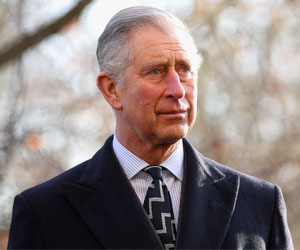Prominent US senator Edward Kennedy has been diagnosed with malignant brain tumour, say the doctors attending on him.
The 76-year-old Democratic politician was hospitalized Saturday morning after suffering a seizure at his family's compound at Hyannisport, Massachusetts."Preliminary results from a biopsy of the brain identified the cause of the seizure as a malignant glioma in the left parietal lobe," according to a hospital statement.
Malignant glioma is the most common primary brain tumor, accounting for more than half of the 18,000 primary malignant brain tumors diagnosed each year in the United States, according to the National Cancer Institute.
Sen. Edward Kennedy has the most common type of brain tumor, but the size and nature of the tumor will determine how life threatening it is, CNN's chief medical correspondent Dr. Sanjay Gupta said Tuesday.
Gupta, who is a neurosurgeon, said a tumor in that area of the brain could affect the senator's ability to speak and understand speech as well as the strength on the right side of his body.
The parietal lobes are also responsible for simultaneously interpreting signals from other parts of the brain that focus on vision, hearing, motor, sensory and memory, according to the American Association of Neurological Surgeons Web site. That information, combined with a person's memory, gives meaning to objects.
Advertisement
Several Massachusetts Democratic sources close to the Kennedy family told CNN that the senator and his wife, Victoria, are awaiting more test results and information from doctors before deciding whether surgery is a viable treatment option.
Advertisement
As evidence of the senator's good spirits, this source said Kennedy asked his doctors if he could leave the hospital to participate in a sailing regatta off Cape Cod this weekend.
But surgery can be tricky, said Dr. Wendy Wright, assistant professor of neurology at Emory University School of Medicine in Atlanta.
"The problem with glioma is, when surgeons go in and try to work on this, it's nearly impossible to tell what is tumor and what is brain cells, because this is a tumor of the brain cells," she said. The result, sometimes, is that the surgery causes brain damage, Wright said.
And the area of the brain where Kennedy's tumor is located is "high-risk real estate, near a lot of centers that can affect the ability to move the right side of the body, the ability to speak and understand," she said.
In cases where surgery is deemed too dangerous, doctors opt to avoid surgery altogether, and stick with chemotherapy and radiation, she said.
Kennedy will remain in the hospital, his doctors said, and a decision about treatment will be made after more tests are done.
Doctors say Kennedy's tumor is a malignant glioma, but they have not said how large it is or how quickly it may be spreading.
Average survival can range from three to five years for moderately severe malignant gliomas to less than a year for very advanced and aggressive types such as glioblastomas.
"We have limited information about Senator Kennedy's situation, and it would not be appropriate for us to speculate on his condition or outlook," said Dr. Otis W. Brawley, chief medical officer for the American Cancer Society, in a written statement.
He estimated that 21,810 malignant tumors of the brain or spinal cord will be diagnosed this year in the United States and that approximately 13,070 people (7,420 men and 5,650 women) will die from the tumors.
The cancers account for about 1.3 percent of all cancers and 2.2 percent of all cancer-related deaths in the country, he said.
About 42 percent of brain tumors, including benign ones, are gliomas, and about 77 percent of malignant tumors are gliomas, Brawley said.
Uncommon among children, their incidence goes up with age and peaks among people ages 75 to 84. Survival tends to drop with increasing age, he said.
Source-Medindia
GPL/S











